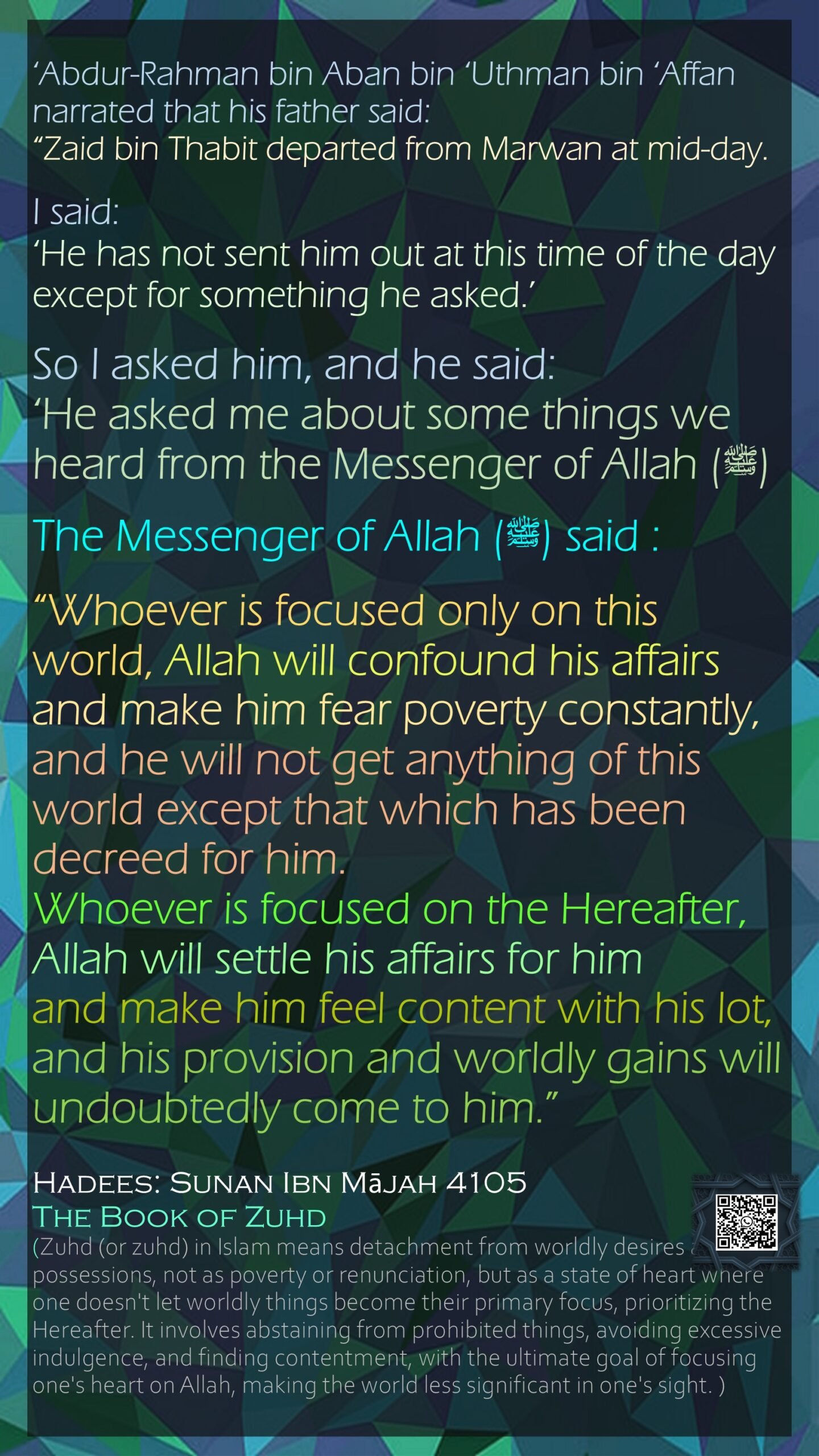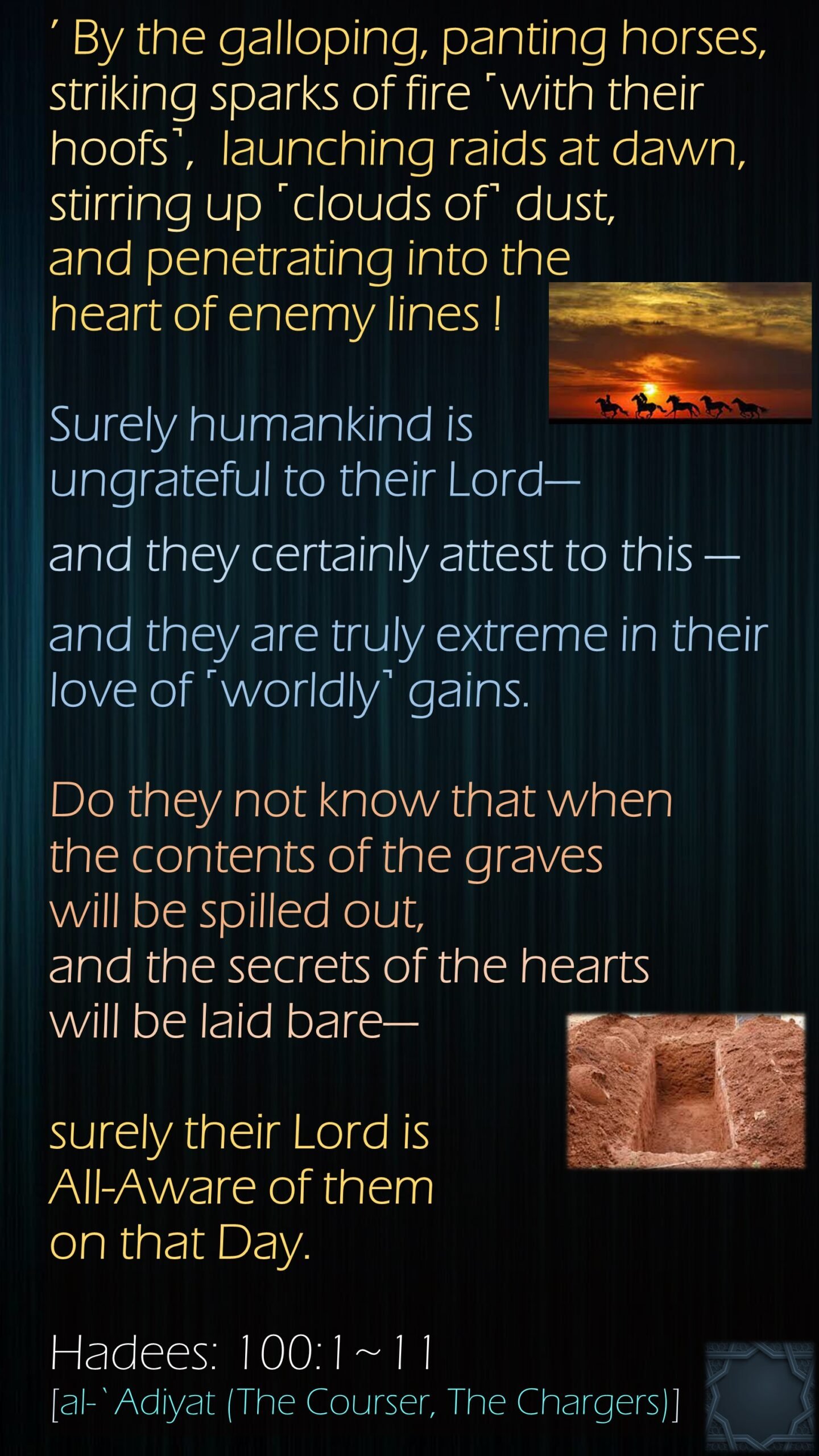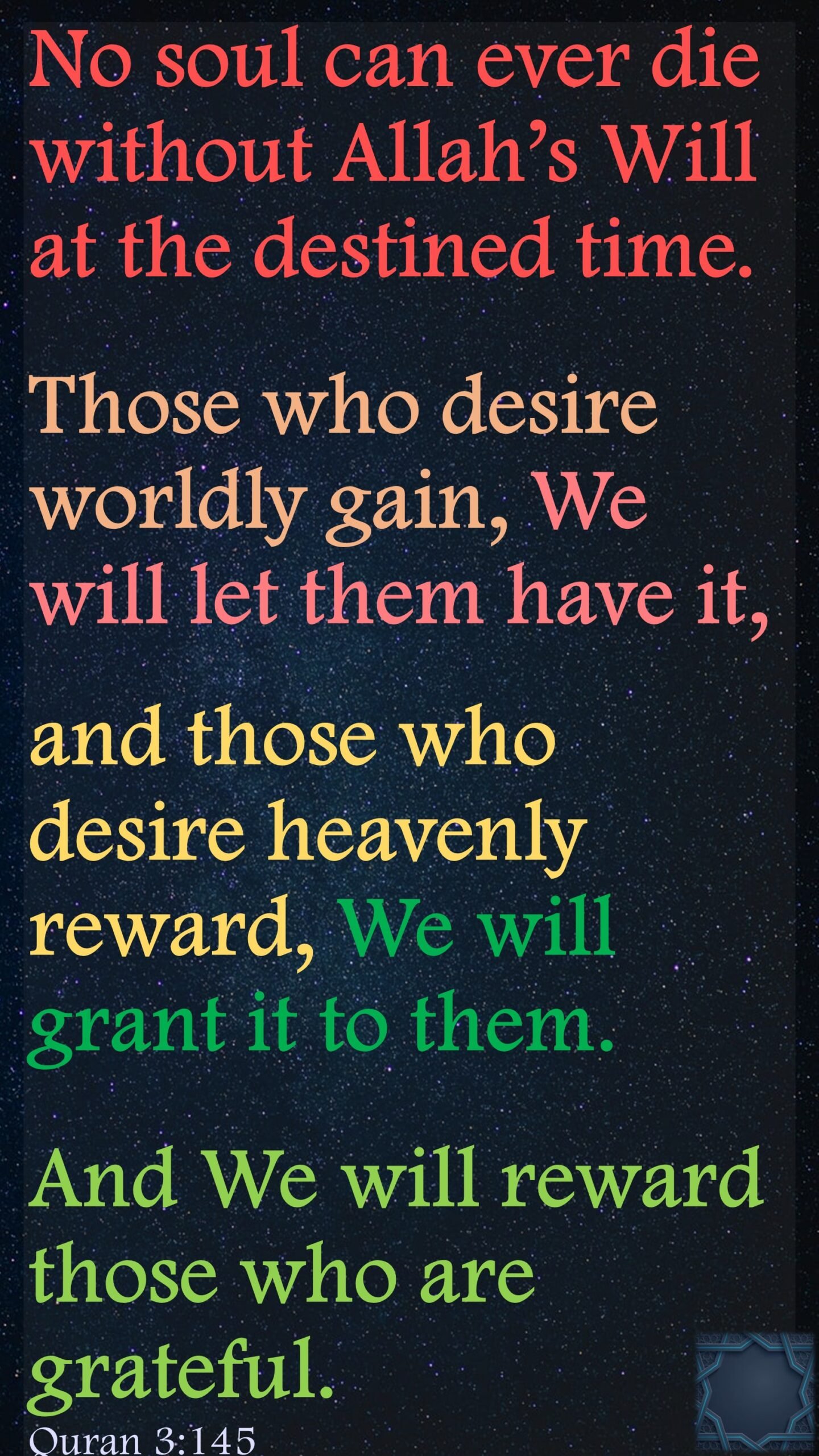Skip to Content
Tag Archives: gain
- Home -
- Posts tagged "gain"
19
Jan, 2026
Hadees, Islam
4105, affair, Allah, book, confound, constant, content, daily, decree, fear, feel, focus, gain, hadees, hadith, hereafter, Ibn-e-Majah, inspirations, islam, islamic, Muhammad, poverty, provision, settle, undoubt, World, worldly affairs, Zuhd
25
Jun, 2025
Islam, Quran
009, 122, Allah, ayat, believer, beware, daily, enlighten, evil, gain, group, inspirations, islam, islamic, knowledge, march, Muhammad, party, people, quran, religious, repentance, return, Surah, taubah
22
Jul, 2024
Islam, Quran
002, 275, 276, al_Baqarah, Allah, ayat, charity, Cow, daily, evildoer, fire, fruitful, fruitless, gain, inspirations, interest, islam, islamic, Judgement Day, madness, Muhammad, persist, quran, refrains, resident, Satan, Surah, trade, trading, ungrateful, warning
30
Jan, 2024
Hadees, Islam
actions, Allah, daily, gain, hijrah, inspirations, intentions, islam, islamic, marry, migration, motive, Muhammad, niyyah, niyyat, Umar bin al-Khattab, wife, woman, World, worldly
29
Nov, 2023
Islam, Quran
All-Aware, Allah, ayat, daily, dawn, day, dust, enemy, gain, hearts, horses, humankind, inspirations, islam, islamic, judgement, laid, Muhammad, open, panting, quran, secrets, sparks, Surah, ungrateful
3
Dec, 2022
Islam, Quran
Allah, Ash, ayat, blown, chapter 14, daily, farthest, fire, gain, inspirations, islam, islamic, nothing, quran, storm, stray, Surah, Verse 18, wind
13
Nov, 2022
Islam, Quran
Allah, ayat, covenant, daily, day, fleeting, gain, hereafter, inspirations, islam, islamic, judgement, look, losers, neither, no share, oath, painful, Punishment, purify, quran, speak, suffer, Surah
23
Oct, 2022
Islam, Quran
Allah, ayat, chapter 3, daily, Death, destiny, gain, grant, grateful, have, heavenly, inspirations, islam, islamic, patient, quran, reward, Surah, time, verse 145, World
15
Jun, 2022
Islam, Quran
act, Allah, ayat, certain, chapter 102, daily, differently, gain, grave, inspirations, islam, islamic, judgement, money, pleasure, question, quran, seee, Surah, World









